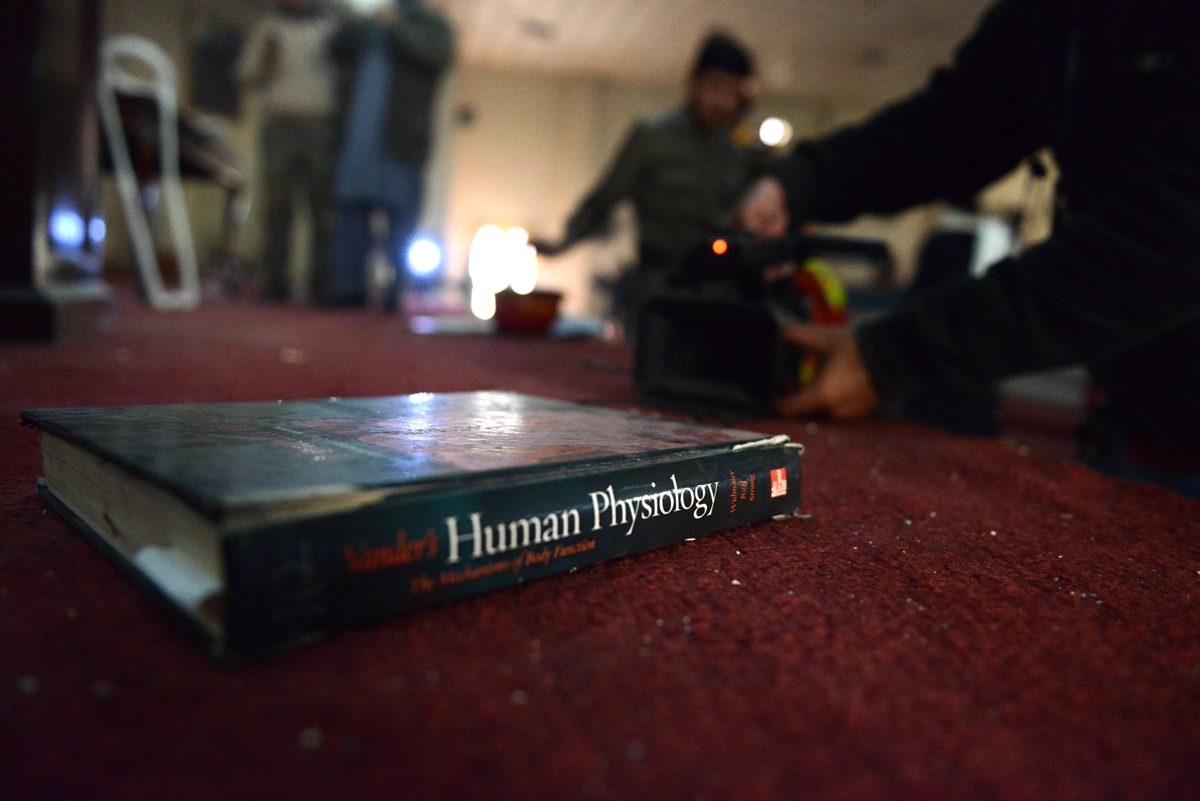

Even in a country inured to almost daily acts of terrorism somewhere within its borders, this was an exceptional event. There have been mass murders by terrorists in the past — the church in Peshawar last year that suffered a double suicide bombing, 80 dead; Quetta in January 2013, a snooker hall and 120 dead; May 2010, the Ahmadi community in Lahore attacked and more than 80 dead — and there are many more. But what singled the Peshawar attack out was the specific targeting of children. A TTP spokesman has made it very clear that the attack team were to target older boys — but they killed a teacher by burning her alive in sight of her students.
The outpouring of national grief cannot hide the underlying failures that are ultimately responsible for this atrocity. The school itself was vulnerable, and to have an unguarded part of its perimeter, in the heart of one of the most heavily militarised cities in the country, is a serious lapse of judgment. At the very least, there should be a cleared area along the whole perimeter that is covered by CCTV which is both on and monitored 24/7. Secondly, this is the clearest indication possible that the Pakistani Taliban are not broken or completely disabled. This was a sophisticated attack that required preplanning and logistical support within the local population, and the Taliban themselves have said that this may be little more than a preview of what is to come — and there is no reason to doubt either their intent or their capacity.
Despite the reported — but not independently verified by observers outside the military — success of Operation Zarb-e-Azb in North Waziristan, it has not degraded the ability of the TTP franchise to operate at will. No doubt there are intelligence successes that may go unpublicised or unreported, but the fact remains that a large and highly capable group of terrorists, some with different agendas but all with the overarching commitment to the overthrow of the democratic state, are alive and well.
There is still no national counter-terrorism policy or strategy in the public domain, and there are equivocal messages coming from some of the political players who are willing to, as in this case, condemn the attack itself but not the perpetrators thereof — and this despite the TTP quickly owning and seeking to justify the carnage. That is a consummate failure of governance both by the PML-N administration and its immediate predecessors. It must be hoped — but not necessarily expected — that wrong might in part be remedied by the APC in Peshawar, but fine words will need to be put into practice with the utmost haste if public confidence in democratic governance is not to slip further. Pakistan has suffered a grievous blow; how it recovers from that will depend on a political cadre whose competencies in all things must be minutely questioned.
Published in The Express Tribune, December 18th, 2014.
Like Opinion & Editorial on Facebook, follow @ETOpEd on Twitter to receive all updates on all our daily pieces.
COMMENTS (2)
Comments are moderated and generally will be posted if they are on-topic and not abusive.
For more information, please see our Comments FAQ












"Maa kaash mai aj school na jaata, Shayad tumhe phir se dekh pata
Teri awaz sunney ko kaan taras rahe hai, Dekho na maa baarudo k gole baras rahe hai
Saare baache apni apni maa ko pukar rahe hai, Maa ye log hume kyu maar rahe hai
Tiffin me di tumari roti bhi nai khaai hai, Maa aaj golio ne meri bhuk mitaai hai
Papa se kehna ab mujhe school lene na aaye, Dekh nahi paunga unhe mera janaza uthaaye
Mere jaane se apna hausla mat khona, Maa mujhse bichhad kar tum mat rona
Mere khilone ,meri kitabe , mera basta, Janta hu teri aankhe dekhti rahegi roz mera rasta
bhaiyya se kehna uska sathi rooth gaya hai, bachpan ka humara sath chhott gaya hai
Appi se kehna mere liye aansu na bahaye, Roz meri tasveer ko chota sa phhol chadaye
Teri yaado me, khwabo me, zikr me, reh jaunga,
Maa mai ab kabhi wapas nahi aaunga… Maa mai ab kabhi wapas nahi aaunga…
Very well written. But how about political parties who fund Taliban like groups to get their support? We know that NS and brother SS do that. They are part of the problem and part of solution. Buit there are good parties around. PPP and MQM distance themselves from extrtemists. We should tell the public of the double game some are playing. That cannot be toleraterd.